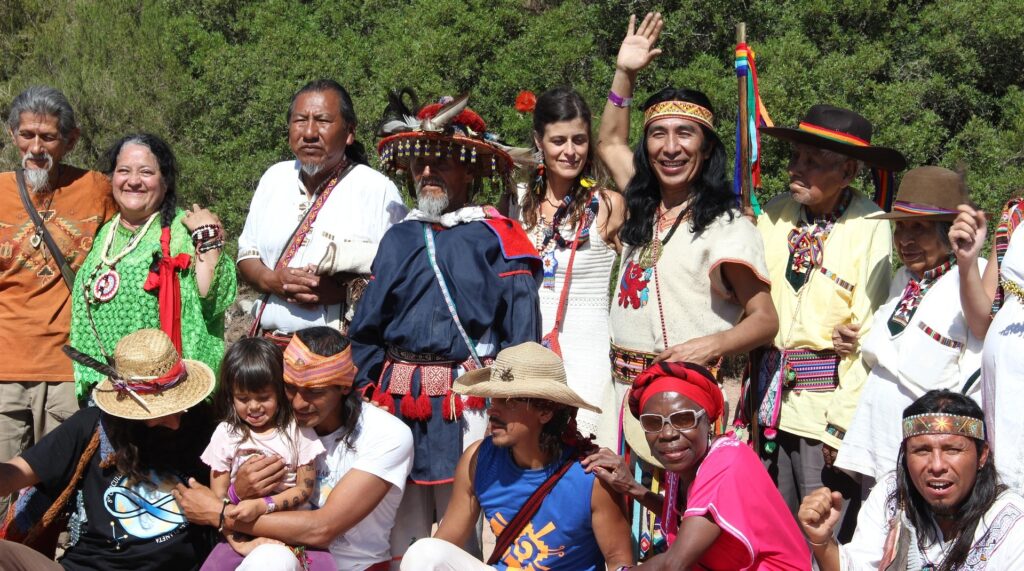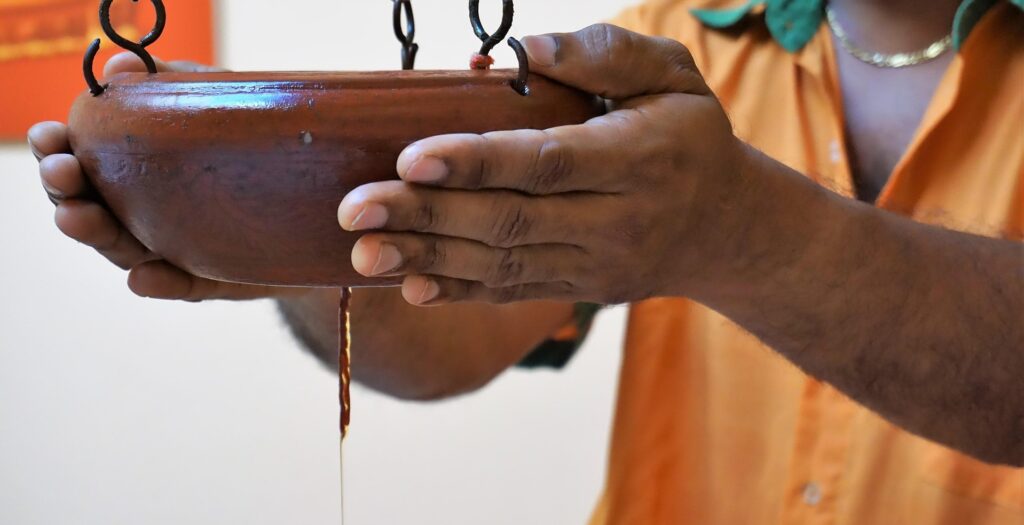Feeling

Feeling, sharing, understanding:
Why communication matters so much when traveling
Traveling not only takes us to new places, but often also brings us closer to ourselves. We encounter different cultures, languages, mindsets, traditions and norms, and we come to realize how essential our way of communicating is. Above all, the ability to feel – in all its forms – plays a central role when we’re on the road.
But what does it actually mean to feel? Feeling goes far beyond mere touch or physical contact. It’s not just about sensing through the skin – it also involves our emotions. It’s a vital way of perceiving the world around us. Whether through tactile sensations, physical impressions, or emotional responses, feeling is a key to experience. It not only helps us determine whether something is pleasant or uncomfortable, but also how we perceive ourselves and our surroundings. While traveling, these impressions tend to be especially intense. Unfamiliar landscapes, the climate, a different sense of time, foreign smells or sounds: they challenge our senses and our inner balance.
Over the course of our travels, we’ve learned to speak up when something makes us uncomfortable and to ask questions when we don’t understand something. As the saying goes: only those who speak up can be helped – whether at home or abroad.

When we use a service – for example, a massage – and notice that something feels uncomfortable or off, it’s worth speaking up. Whether it’s the generous use of oil, unfamiliar touch, a ticking clock, or an uncomfortably cold fan: it often makes a world of difference to express ourselves politely and directly on the spot, rather than quietly getting annoyed and later venting our frustration online in the form of a bad review.
Often, a smile and a simple “no thank you” or “less” are enough. And if there’s no common language, a few gestures usually do the trick. That way, people have a chance to make things more comfortable or explain the situation – because many misunderstandings are simply due to a lack of awareness.
Especially in countries with different cultural practices, it’s important not to jump to conclusions. What might feel unfamiliar to us – such as the inclusion of the chest in an Ayurvedic massage or heavily oiled hair – is often part of a long-standing tradition. Once we understand that, we can express our preferences accordingly: less oil, skipping the chest area or the hair. So far, our individual requests have almost always been respected. And when that hasn’t been the case, we’ve politely ended the treatment or chosen not to use the service at all. That has always been perfectly fine. After all, why get upset?
Unlike in many Western countries, raising your voice in Asian cultures often has the opposite effect – it gets you nowhere. We once witnessed a group of tourists loudly complaining about a delayed ferry. The more they shouted, the more indifferent the woman at the counter seemed. In the end, they had wasted an incredible amount of energy instead of trying to find a constructive solution together.
On another occasion, we overheard foreign guests loudly complaining to the owner of their accommodation about the macaques in the area. The monkeys had stolen their sweets, which had been left out in the open on the terrace. But what was the owner supposed to do – set up a monkey-free zone? Some wishes are simply impossible to fulfill.
It’s important to remember that subjective online reviews – especially those written in a moment of frustration or out of misunderstanding – can seriously harm self-employed individuals and small businesses. A negative review is unfair if it’s made in general terms, without explanation, and if locals weren’t given the chance to address the issue beforehand. Small businesses grow slowly but steadily, and every review – whether positive or negative – has a significant impact on them.
Communication can definitely improve the way all living beings interact – even if it simply encourages reflection. Awareness is often the first step toward change. Many people, for example, aren’t aware that certain behaviors – like turning on a phone flashlight at the beach – can negatively affect animals.
One might say something like:
“Hey, I just wanted to mention – the light can confuse the baby sea turtles. They find their way by following the horizon, and flashlights often throw them off. I didn’t know that either, until someone told me!”
When spoken calmly, respectfully, and kindly, this kind of message can lead to the following:
- Immediate change of mind: “Oh wow, I didn’t know that – I’ll turn the light off.”
- Long-term awareness: The person might share this information with others or be more mindful next time on their own.
- Encouragement of consideration: When people notice others paying attention to these things, they feel motivated to do the same themselves.
Every misunderstanding and moment of ignorance also holds a chance for better understanding – if we feel it, speak about it, and try to understand. Traveling teaches us that mindful feeling and open communication go hand in hand. Time and again, it shows us that the path to connection leads through kind words, sensitivity, and a bit of courage to start a conversation.
Feeling instead of judging:
Why traveling is also an inner journey
When we travel, we gather impressions – visual, auditory, culinary. Yet we often overlook perhaps our most important sense: feeling. It’s not just the sense of touch with which we physically contact surfaces. Feeling also means sensing, perceiving, and understanding. It includes both physical reactions and emotional responses – empathy, curiosity, irritation, or rejection. Especially when traveling, we experience how much feeling influences our perception and how much our own judgment depends on it. Lack of knowledge and an absence of sensitivity to local circumstances can quickly turn into resentment.
One example of this is entrance fees for national parks or museums in poorer countries. Many tourists get upset that locals only have to pay a symbolic amount, while they themselves are charged many times more. Quickly, accusations of “rip-off” arise, and negative reviews often follow. But when you empathize instead of just calculating, you see the context: In countries like Sri Lanka, the average monthly income is around 270 euros, and the legal minimum wage is about 84 euros. A local once told us that he earns the equivalent of 7 euros a day – for his whole family (wife, two children, grandmother).
In light of this, an entrance fee of 25 euros for a national park – which many locals can’t even afford for 1 euro – takes on a very different meaning. Especially since these fees also help regulate visitor numbers and protect nature. Of course, excessive prices should be questioned critically, so it’s important to research the usual and official fees beforehand. But blanket judgments and snap reviews don’t help anyone – they tend to divide us instead. Fundamentally, it’s wise to show interest in the people, their way of life, and the challenges they face. Doing so can help put our perspectives into better context.
This becomes clear in another way as well: We, who come from so-called industrialized countries, are often seen as wealthy, privileged, and modern. But how much are we really in touch with ourselves? Our world is digitalized and efficient, but also isolating. People increasingly feel alienated, suffering from stress, loneliness, and inner emptiness. While in many poorer countries, despite difficult living conditions, people appear connected – greeting both friends and strangers with a smile, talking and laughing together – what often seems to be missing here is exactly that sense of connection.
Here, feeling also means pausing – opening ourselves to other perspectives and ways of life. It means not holding our own (Western) standards as absolute. And perhaps it means recognizing what truly matters.
Traveling is more than just collecting photos and checking off lists. It’s an invitation to sharpen our senses, to feel ourselves, and to approach others with openness, respect, and compassion. Those who truly feel judge less quickly. And those who feel begin to understand.




Leave a Reply